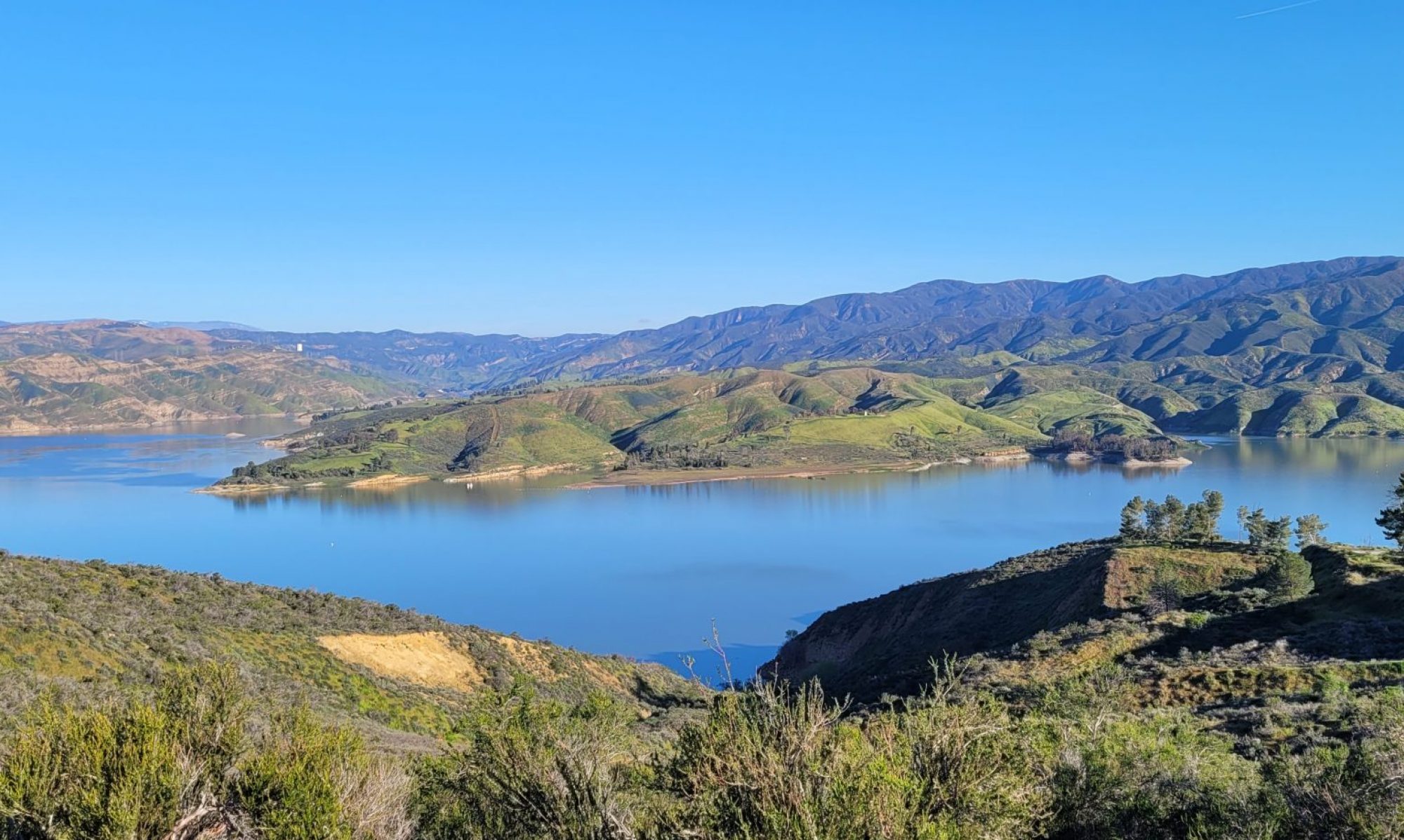
“Crap, it’s hot!”
The midmorning autumn sun was lasing into the windows of the Fun Car as we loaded it one last time. It gave me an instant headache. Wasn’t it raining just yesterday? Didn’t we spend all of Oregon trying to choose between windbreaker slicker, Danish raincoat, and umbrella?
Over the Green Pass into Chaparral
We had come over the Siskiyou Pass the previous night, south from Ashland in a setting sun that kept trying to peek through a cloud bank. The Pass is the highest point on I-5 at 4310 feet, and my ears popped coming down as KK, the better driver, carefully navigated among cautious truckers manually downshifting and deathwish sports cars.
I was treated to a stunning view of rolling brown hills of the Cascade-Siskiyou Forest to the east and Klamath to the west, polka-dotted with pumpkin-colored tamaracks. Just after the California border, the trees dropped away into what looks like desert, although this is chaparral, high desert. Central California is full of rolling hills with drought-reistant thickets like manazanitas. It just looks brown compared with the green we’ve left, but this is its own kind of tough and hardy place, as much as the climate and people we’ve left in the north.




